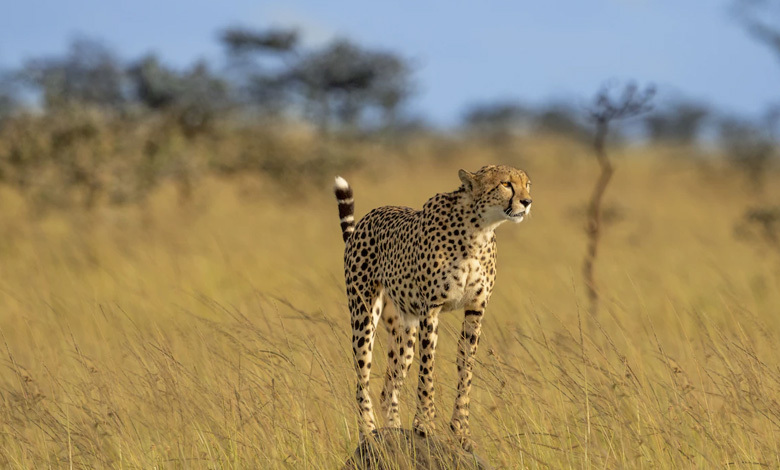Cheetahs in Crisis: Adapting to Climate Change Challenges

Why Cheetahs Will Be Especially Vulnerable to Climate Change, According to New Research
As the consequences of climate change continue to impact ecosystems worldwide, a recent study has shed light on how rising temperatures affect the behavior and habitat of one of the planet’s most iconic and endangered species: the cheetah. Researchers have uncovered a concerning trend that may pose significant challenges to the survival of these incredible big cats in the face of climate change.
The study, published in a renowned scientific journal and led by a team of wildlife experts and ecologists, presents a comprehensive analysis of the cheetah’s response to changing environmental conditions in regions where they are found. The research involved monitoring cheetahs in various ecosystems, including savannas and grasslands.
One of the key findings of the study is the direct correlation between increasing temperatures and alterations in cheetah behavior. The researchers found that as temperatures rise, cheetahs are becoming more nocturnal. These sleek, spotted predators, famous for their incredible speed and daytime hunting, are now forced to adapt to the warming climate by shifting their activities to cooler nighttime hours.
The study indicates that the primary drivers of this behavioral shift are rising daytime temperatures and the resulting challenges in maintaining optimal body temperatures, which can affect hunting success and overall survival. Cheetahs are known for their incredible bursts of speed during the daytime, which they use to chase down prey. However, in sweltering conditions, such as those intensified by climate change, these chases can lead to overheating and exhaustion.
Researchers also highlighted the indirect consequences of cheetahs transitioning to a more nocturnal lifestyle. This behavior change brings them into competition with other nighttime predators, such as lions and leopards, which can be a dangerous contest for a species already facing numerous threats.
Another critical aspect of the research is the impact on the cheetah’s prey. Cheetahs primarily hunt small to medium-sized ungulates, like gazelles and impalas. The study’s findings suggest that climate-driven changes in cheetah behavior may alter the dynamics of predator-prey relationships, potentially affecting not only cheetahs but also the broader ecosystem.
Cheetahs are a species classified as vulnerable to extinction by the International Union for Conservation of Nature (IUCN), with their numbers declining due to habitat loss, human-wildlife conflicts, and poaching. With these new findings on the consequences of climate change, the cheetah’s struggle for survival becomes even more critical.
Read More: AI: The Game Changer in Climate Change
The research underscores the importance of addressing climate change and its multifaceted impacts on wildlife. It is not only the rising global temperatures that pose threats to species like the cheetah but the complex ways in which these changes disrupt ecosystems, altering the behavior and interactions of these magnificent creatures.
Conservationists and researchers working to protect cheetah populations now face the added challenge of adapting their conservation strategies to mitigate the impacts of climate change on these big cats. This may involve creating and preserving suitable habitats, minimizing human-wildlife conflicts, and ensuring the survival of the cheetah’s prey species in the changing climate.
This study serves as a wake-up call, highlighting the need for immediate and coordinated efforts to address climate change, safeguard vulnerable species, and protect the delicate balance of ecosystems. As cheetahs adapt to the warming world by becoming creatures of the night, their resilience symbolizes the broader challenges that climate change presents to the natural world.



